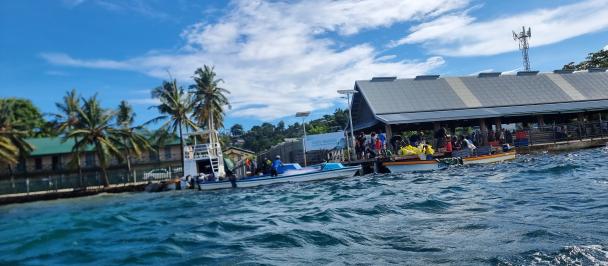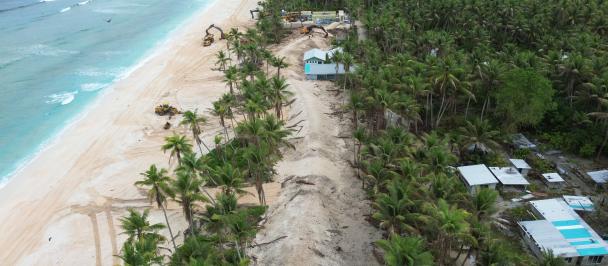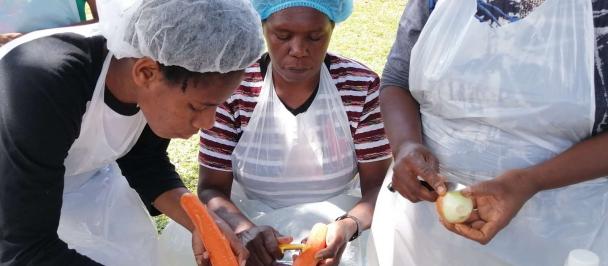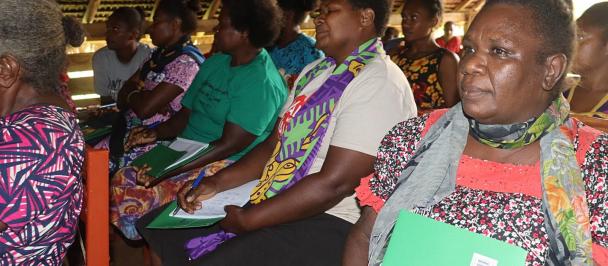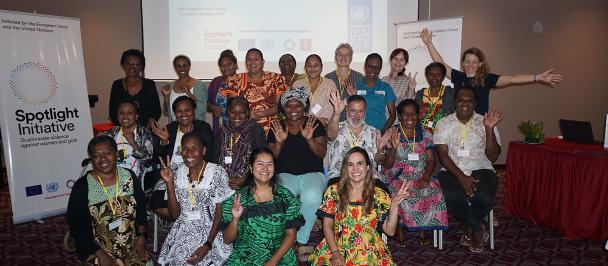Rural market vendors are crucial to Vanuatu’s agriculture and livelihood
December 12, 2022
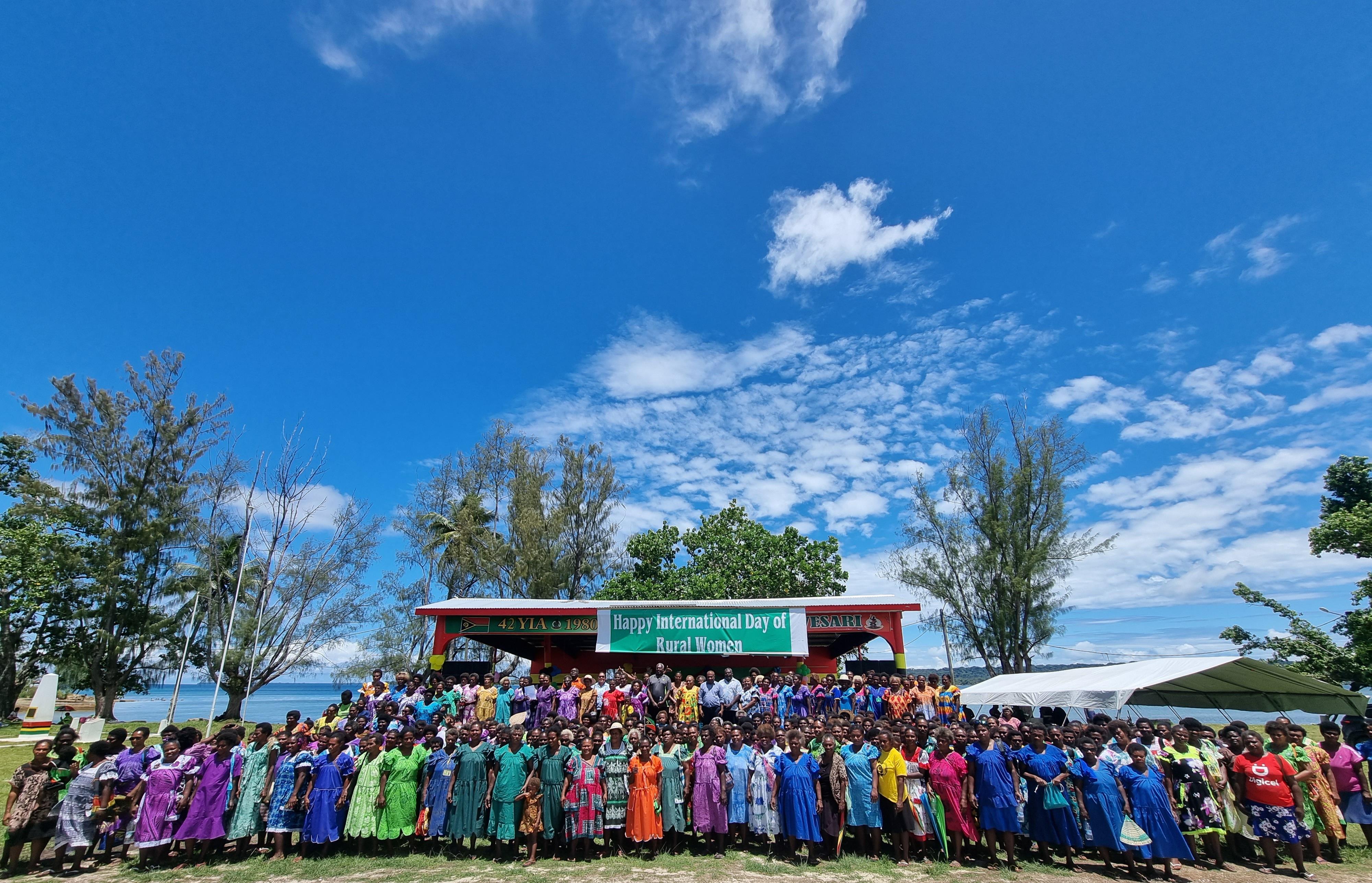
Market vendors of Sanma province celebrate International Day of Rural Women in Santo, Vanuatu in November 2022.
Market vendors in Vanuatu should be encouraged and promoted as agents of change, as they play a crucial role in enhancing agricultural and rural development to improve food security and eradicate rural poverty.
21-year-old Florita Titus of Sara village, on East Santo Island in Sanma province, was visiting her family in Santo in July 2021 when she learned about a Markets for Change (M4C) Financial Literacy training. The eldest of five siblings had no experience running a business prior to participating in the financial literacy training.
"I'd like to thank UNDP for allowing me to participate in their Financial Literacy training because I learned so much about saving, writing business plans, and setting goals for the future,” she said.
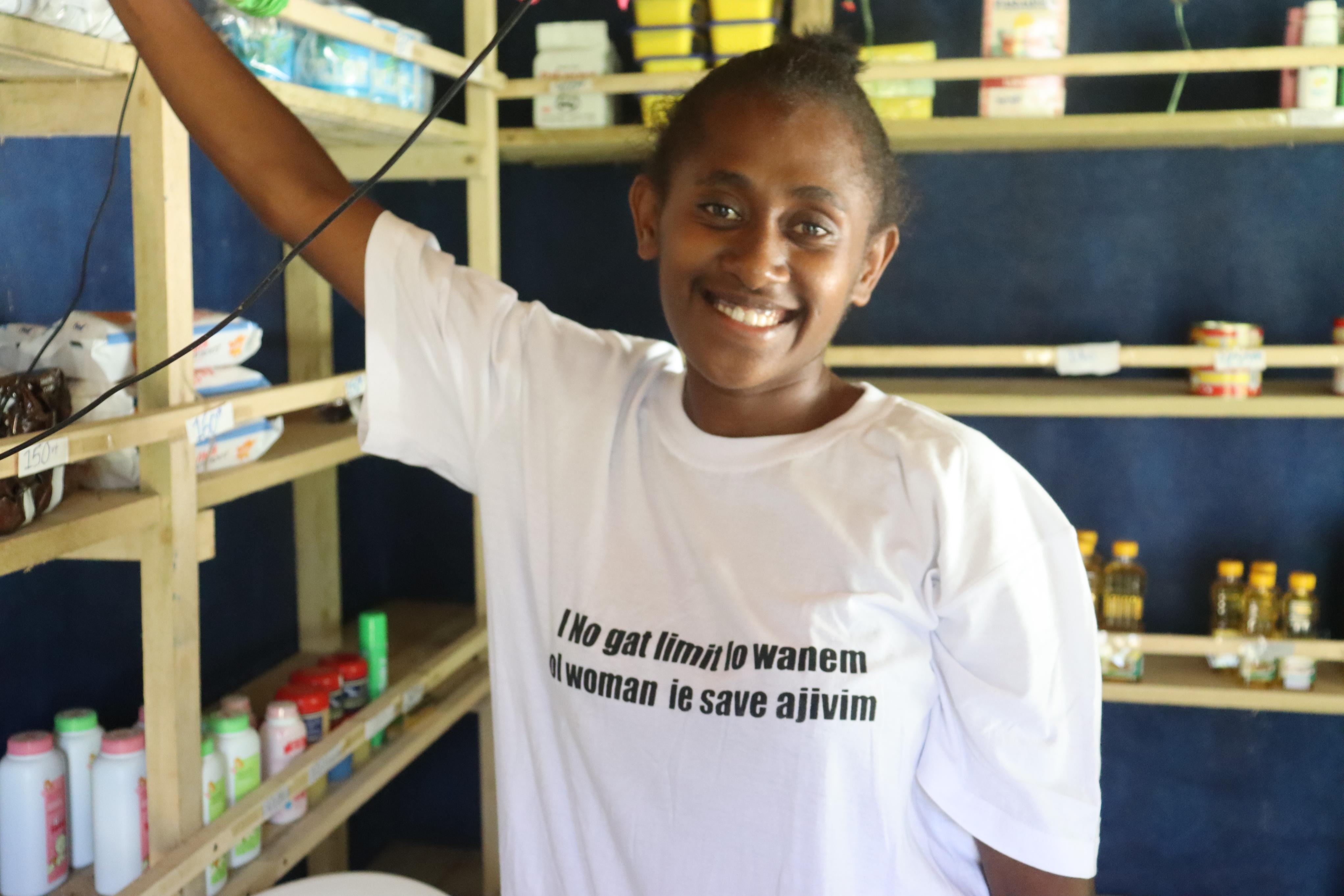
Canteen Owner, Florita Titus.
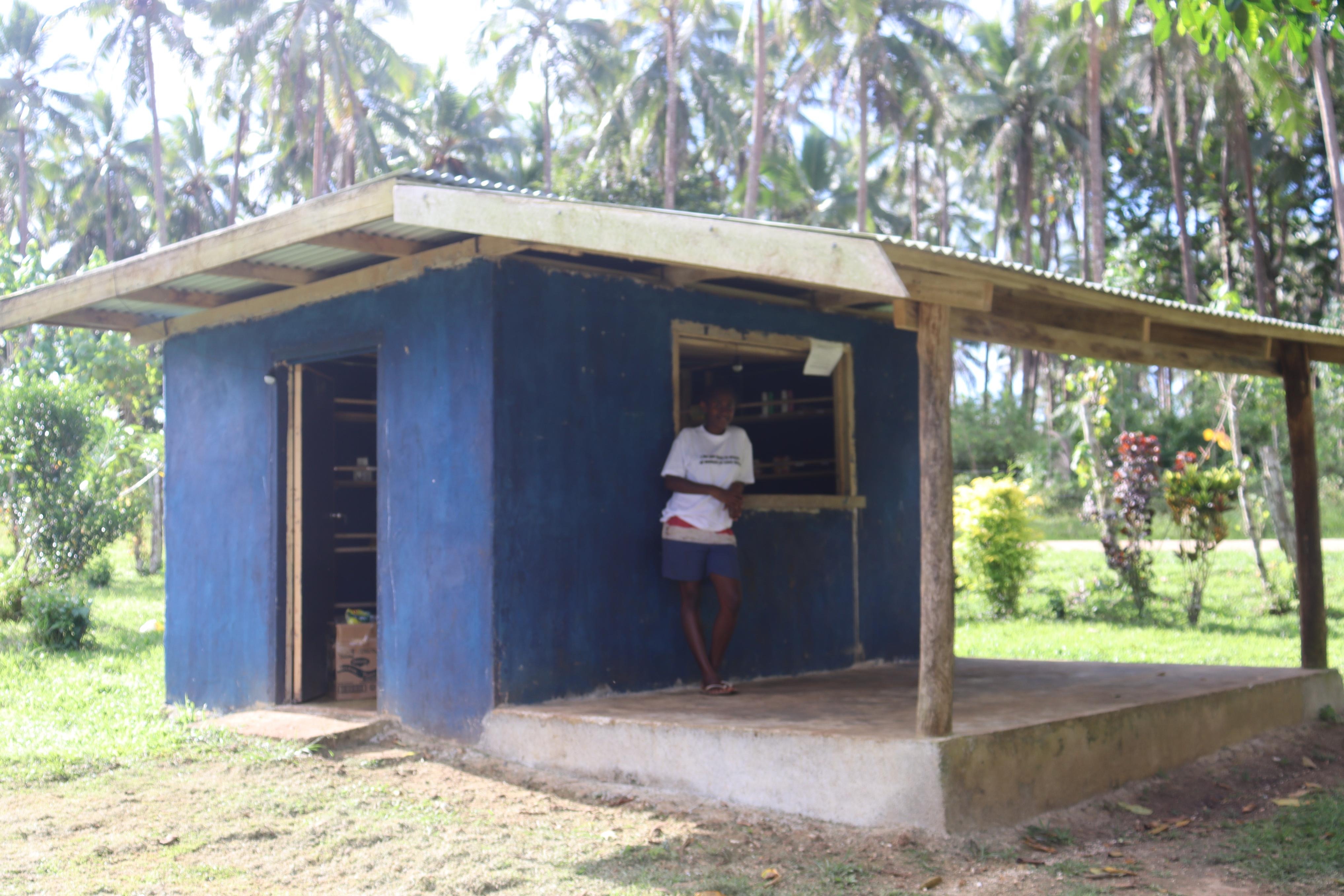
Four months later, Ms. Florita decided to leave her job at Luganville and return to the village to open a canteen with some money she had saved. "I started my canteen business in November last year after the Financial Literacy training. I used to work at Luganville and had managed to save VUV 200,000 (US$1,600), so I was able to buy the materials for my house and sell kava to get materials for my store to house my canteen,” she added.
Apart from the canteen, she was able to build a one-bedroom house a few meters away, where she now lives with her younger sister.
Ms. Florita plans to expand the canteen by adding a freezer to sell frozen goods. She is also considering value addition, given the abundance of resources. Her earnings from the canteen have enabled her to support her parents, who make their living by farming and selling vegetables at the provincial capital’s Luganville market.
The Markets for Change (M4C) project promotes gender equality through the economic empowerment of women market vendors in Fiji, Samoa, the Solomon Islands, and Vanuatu. It brings together governments, market vendors and market vendor associations (MVAs), civil society organizations, and UN agencies.
The Financial Literacy training aimed to connect market vendors and farmers with financial, agricultural, and social service providers by sharing information, raising awareness, and providing networking opportunities that could improve market vendors families' livelihood opportunities.
Solomon Meliu and Ovaltina Solomon have six children and live in Nokuku village on the north-west side of Santo Island. Despite being 22 hours away from the Luganville market, the family’s source of income is farming and selling vegetables and root crops once a week. The rising cost of transportation has only encouraged them to seek alternative means of income. "We've been farming for more than two decades. My wife weaves mats to supplement our income in the village, she sells pandanus mats,” he said.
Mr. Solomon plans to increase their farm capacity within the next ten years.

Nokuku market vendors Solomon Meliu and Ovaltina Solomon.
The Luganville market currently has over 4000 registered vendors, the majority of whom are women, and 10 of whom are living with a disability. The M4C project has been conducting Financial Literacy trainings for market vendors to provide gender-responsive and appropriate financial services, as well as training women market vendors in financial management, business skills, business diversification, record keeping, and budgeting.
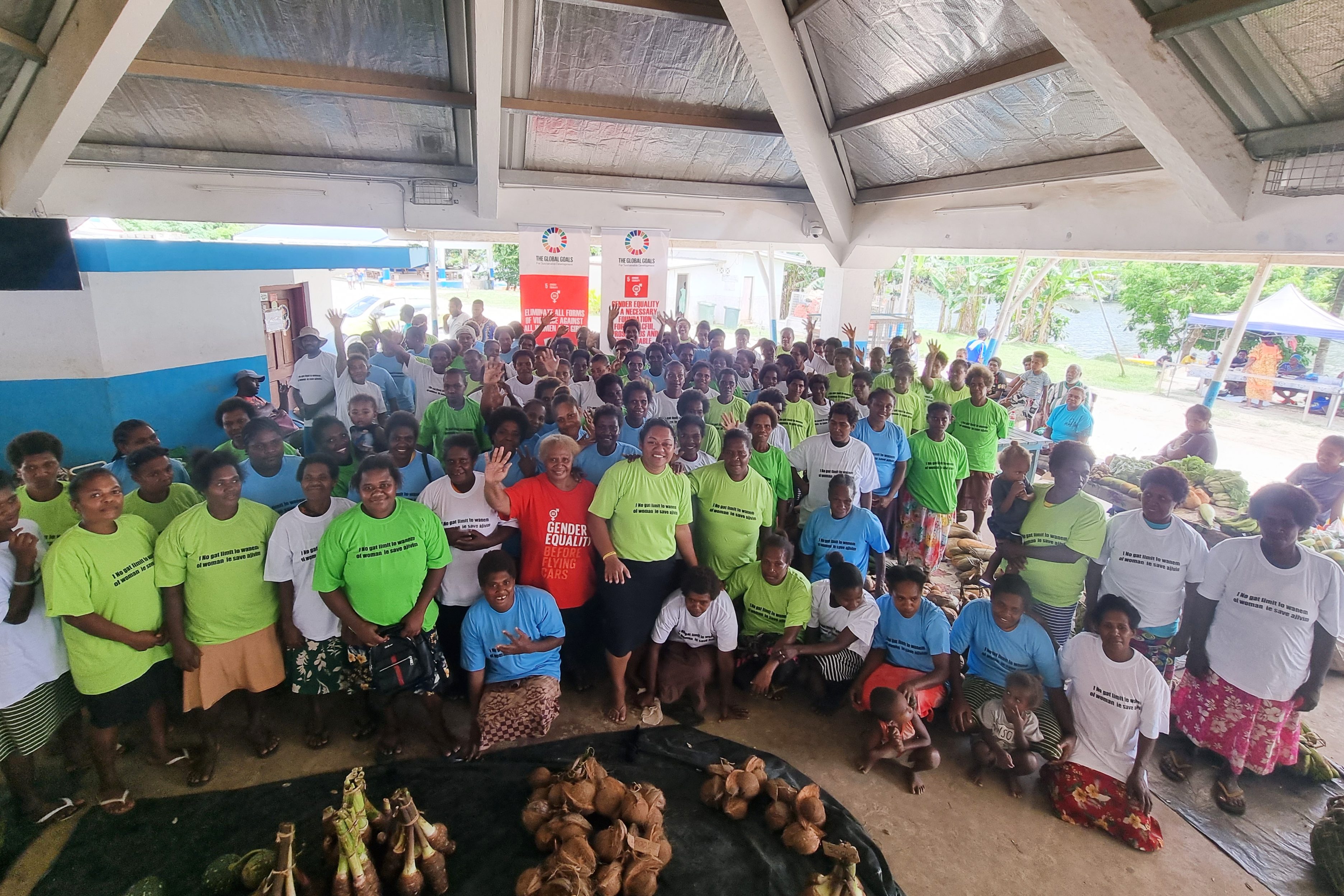
Market vendors at Luganville market, Santo, Vanuatu.
Agriculture trainings were also held to support farmers in increasing production, while value addition trainings were held to support farmers and vendors in producing quality value-added products that can be sold in other markets such as restaurants, hotels, bungalows, tourists, and soon, on digital platforms.
Luganville’s Market Manager, Catherine Leo, has been overseeing the daily operation of the market for the past 12 years and championing women in leadership roles, adding that it's quite a challenge. "Some men find it difficult to work with me, but I make sure to look beyond that and simply work to help them,” she said.
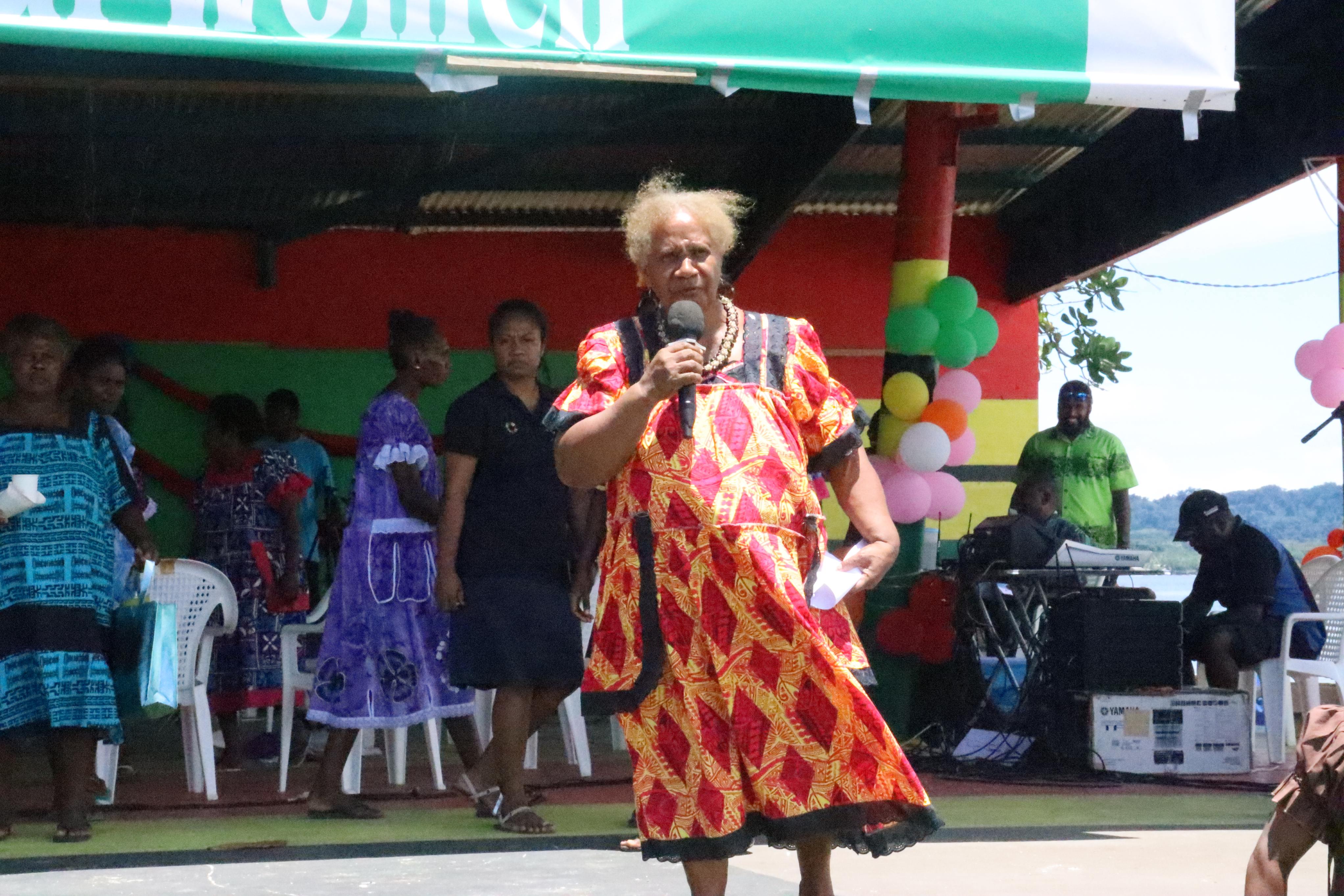
Catherine Leo, Luganville market manager.
"My biggest achievement is that I can work with every vendor who comes and sells at Luganville market, so I am more like the MAMA’s Mama, and I ensure I don’t leave anyone out while reaching the most unreached when I visit the villages so when you look around you will see the vendors smiling and happy," she added.
Due to the island’s geographical location, the 59-year-old has always emphasized the importance of taking advantage of opportunities to learn from the UN Development Programme (UNDP) when awareness sessions are brought to them.
Ms. Catherine highlighted, "I always encourage vendors to participate in UNDP capacity building training. At the Luganville market, we have 60 to 70 vendors selling produce daily. Looking back, I never imagined becoming a Market Manager, let alone having a woman in this position.”
This was the same tune echoed by 58-year-old Rolina Nisa from Kole village on Santo Island’s east coast, – an hour away from Luganville market, who has been the sole provider for her family, relying on sales from the market ever since her husband got into an accident 17 years ago resulting in the amputation of a foot and now faces mobility impairments.
"My children help me sometimes, but I don’t rely on them often. I have to continue selling vegetables and produce to earn money to be able to sustain my family. I have also saved money for school fees and groceries at home since I’m the only one working to put food on our table, so I make sure that I work hard," she said.
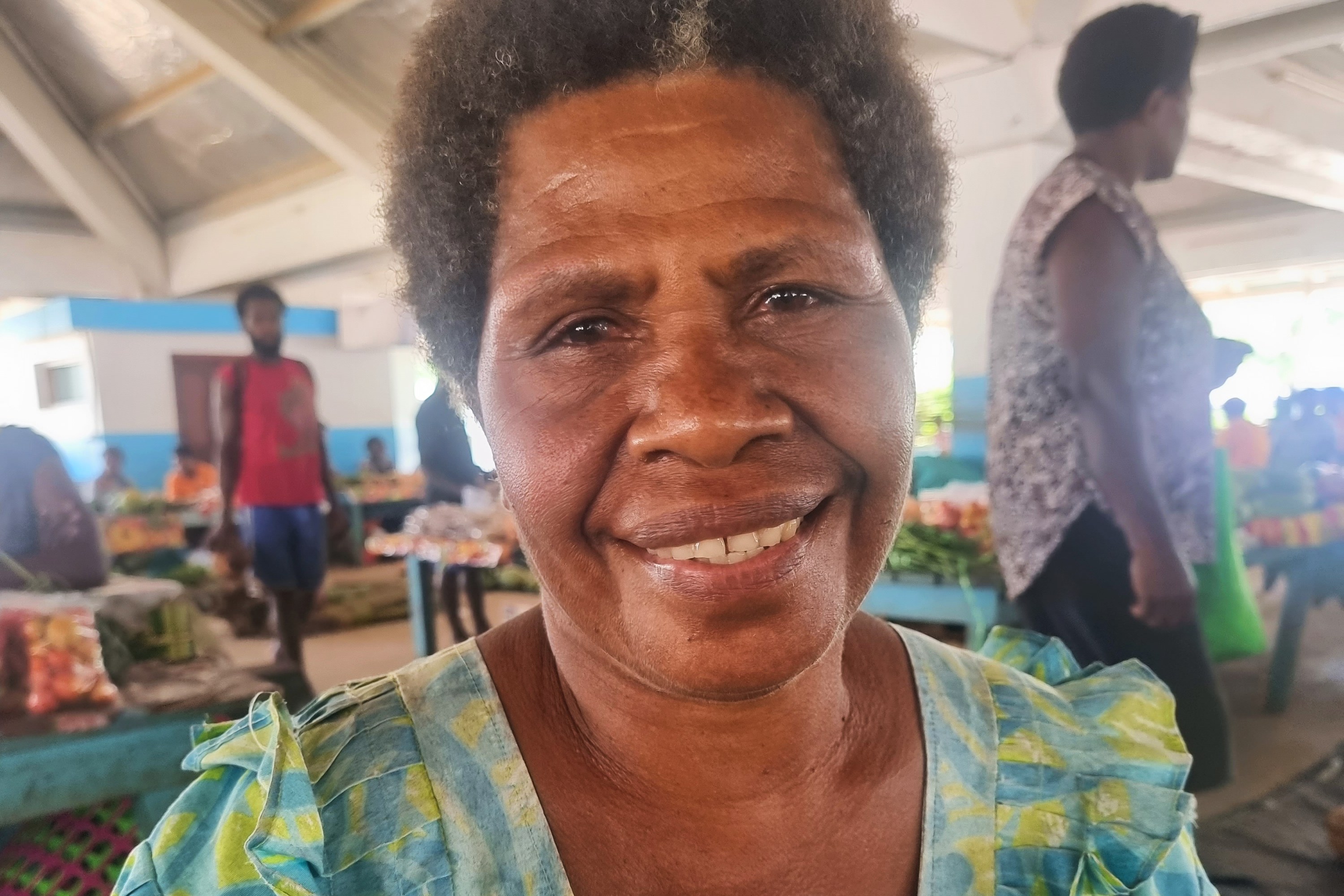
Rolina Nisa, from Kole, Santo, Vanuatu.
Ms. Rolina and the others are examples of what the M4C project is aiming to target to improve their socio-economic security, ensure market vendors are accessing gender-inclusive financial and social services, and demonstrate agency in financial decision-making in their businesses and households.
In line with the 2030 Agenda for Sustainable Development, the M4C project will directly contribute to Sustainable Development Goal (SDG) 5 on Gender Equality, support SDG 8 on decent work and economic growth, SDG 10 on reducing inequalities, and SDG 11 on sustainable cities and communities.
UNDP’s Inclusive Growth Deputy Team Leader Patrick Tuimalealiifano stated, “The Markets for Change Project is an entry point for localizing SDG Goals, which includes supporting rural women’s access to financial and social services in Vanuatu.”
“The M4C project will ensure equality and economic empowerment through the participation of men, women, youth, people living with a disability, and the marginalized minority groups," he added.
The M4C is implemented by UN Women in partnership with UNDP and the Governments of Australia, Canada, and New Zealand.
For more information, please contact:
Akosita Talei, Communications and Research Officer, Inclusive Growth Programme, UNDP Pacific Office in Fiji; email: akosita.ratumaimuri@undp.org;

 Locations
Locations